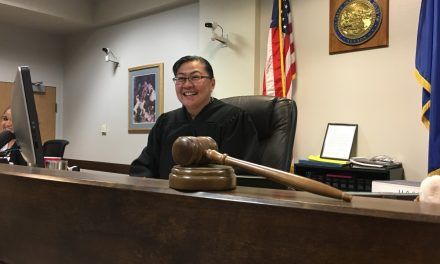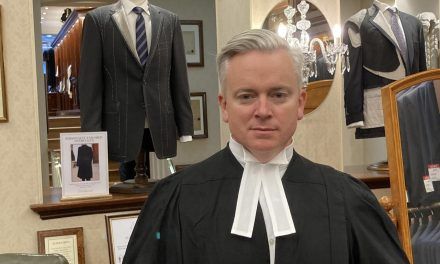Many people will already know that the Inn provides a series of talks, lectures, and other events every year, one of whose aims is to put the practice of law and the work of barristers into a broader context, such as how barristers should see their role in the wider justice system. These Qualifying Sessions, although aimed mainly at students as part of their vocational training, are very much open to all Middle Templars.
A popular format for the sessions is the ‘Sherrard Conversation’. Named after Master Sherrard, a distinguished former Treasurer, two people with knowledge or expertise in a particular field hold a conversation before the audience, following which there are drinks and an opportunity for everyone to discuss and debate the topics covered.
With the Inn’s great support and encouragement, I have been organising a Sherrard Conversation on the rule of law, due to take place in December this year. The aim will be to explore our obligation to obey the law. What is law? How is it related to what is right or wrong, in an ethical sense? Was there law in China during the cultural revolution, or in Germany in the 1930s? Connected with these questions: why obey the law? When can disobedience to the law be justified?
These are large themes, and not every aspect of them can be covered in a single session, but the aim is to get people thinking about these basic questions if they haven’t already, or to add to their thinking if they have, in an informal setting involving as many people as possible at all levels. Details of the session is available on the Events page of the Inn’s website.
The idea for the session began with a discussion about possibly establishing a new Inn society, rather like the Middle Temple Historical Society, with meetings and talks at various times during the year but focused on philosophical questions raised by the study of law or legal practice, for example, by the courts’ approach, or approaches, to the interpretation of contracts. This is not to say that philosophers influence, or ought to influence, judicial decisions, but a philosophical training or perspective may on occasion enhance or add to a practitioner’s (or judge’s) understanding of a legal issue. A good example of this is provided by the late Professor John Gardner, barrister, and philosopher, in a short piece called Why study Jurisprudence? published in the Inner Temple Yearbook (7, 1-8). He points to other benefits, including a sharpening of analytical skills and a contribution to the ability to formulate arguments clearly and logically.
I hope the session in December will stimulate some interest in forming such a group. If anyone would like to express an interest in doing so, or just to find out more, then please feel free to contact me at [email protected].

Before coming to the Bar, where he specialises in commercial and construction cases, William read philosophy at UCL and at Oxford where he did the BPhil and then a DPhil while teaching at two of the colleges. He has recently been appointed to a visiting senior research fellowship in philosophy at King’s College London and his research will include a number of areas which straddle both disciplines.




